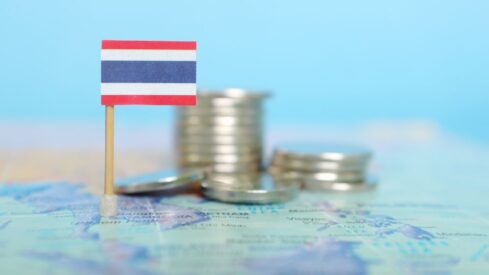Will Thailand hit $2.5 billion in pet food exports in 2024?

The government believes the country’s attractiveness will boost pet food exports to existing and new key markets. GlobalPETS learns more.
The Office of Agricultural and Industrial Trade Promotion from the Department of International Trade Promotion (DITP) forecasts that pet food exports will represent $2.5 billion (€2.4B) this year, an annual improvement of 3%.
Last year, however, pet food exports – including dog, cat and other animal food – shrank to $2.46 billion (€2.3B). In 2022, they accounted for $2.8 billion (€2.6B).
According to the Trade Policy and Strategy Office (TPSO) from the Thai Ministry of Commerce, pet food exports reached $1.1 billion (€1B) between January and May 2024, an increase of 37.6% year over year.
Government officials point out that pet food exports have been constantly increasing since the beginning of the year: January (+9.1%), February (+21.5%), March (+29.6%), and April (+52.9%).
Japan, a new potential market?
Government officials in Bangkok have advised Thai pet food manufacturers to focus on exporting cat food to Japan as cat ownership is becoming more popular in the country.
Thai pet food exports to Japan accounted for $330 million (€308.5M) in 2023, the second-highest after the US.
A DITP official noted an increasing presence of pets over children and recognized Japanese pet parents as high spenders.
According to the available data, Japanese cat owners spent JP¥ 1.5 million ($9.3K/€8.7K) in 2023 from JP¥ 1.1 million ($6.7K/€6.2K) in 2017.
Though spending on dogs increased between 2017 and 2023, it fell in the past 2 years from JP¥ 2.5 million ($15.6K/€14.6K) to JP¥ 2.5 million ($15.2K/€14.2K).
Global politics at play
The Thai government believes that the country is poised for export market success due to low production costs – particularly in labor – providing a competitive edge over rivals in the market.
Thailand enjoys import tax exemptions through its Free Trade Agreements (FTAs) with 15 countries, including Association of Southeast Asian Nations (ASEAN) members China, Australia, New Zealand, Chile, Peru and Hong Kong.
Additionally, growing import rates from the US, China, South Korea and Germany have benefited Thailand, especially as Thai products primarily cater to the middle to premium pet food market.
